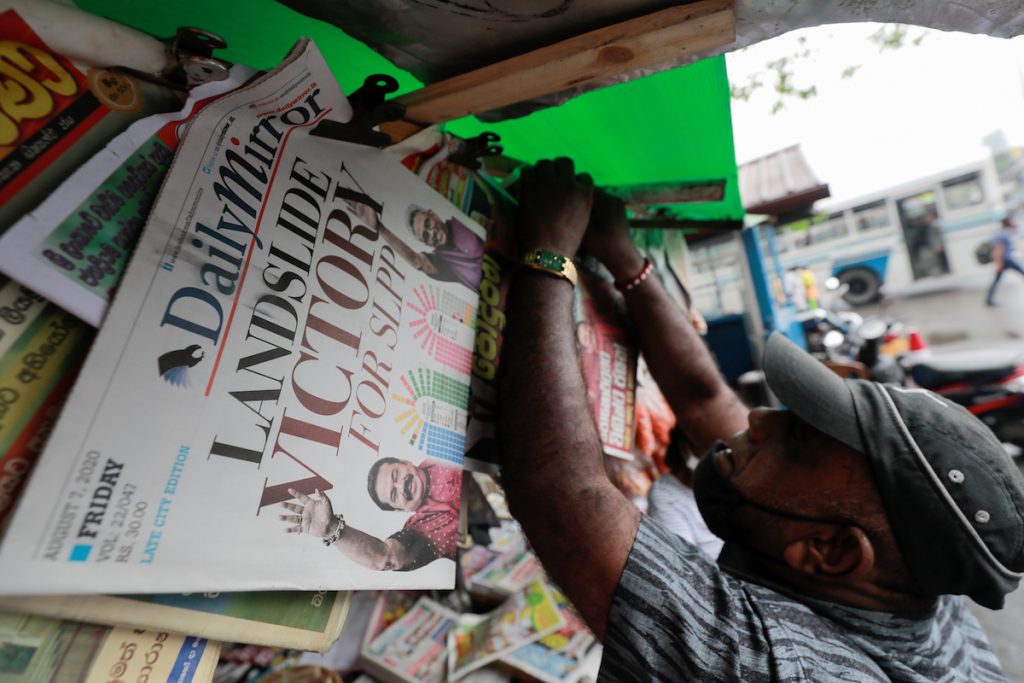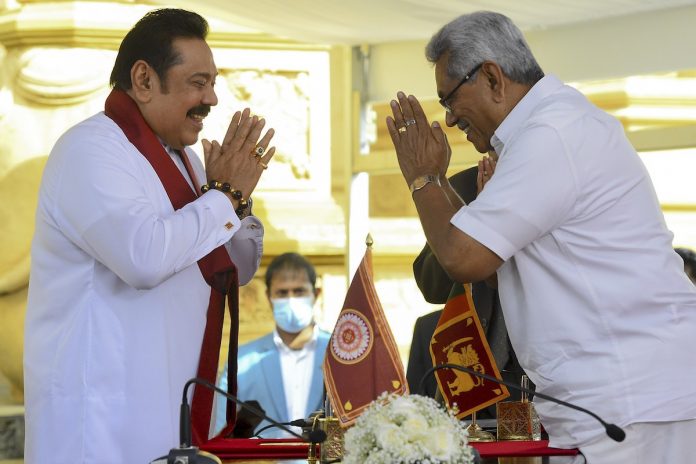Human rights groups have voiced concerns after Sri Lanka’s parliamentary elections handed President Gotabaya Rajapaksa and his older brother an overwhelming majority, giving the family power to enact sweeping changes to the constitution of the island nation.
Rajapaksa had sought, and achieved, a two-thirds majority for his Sri Lanka Podujana Peramuna party and its allies to be able to restore full executive powers to the presidency, a move that analysts say could push the country toward authoritarianism.
The ruling group won 150 seats in the 225-member parliament, according to a tally published by the election commission from last week’s vote.
The two-thirds majority resulted in Rajapaksa’s brother and ex-president Mahinda Rajapaksa, 74, taking over as prime minister on Aug. 9 as the tourism-dependent nation struggles to recover from last year’s deadly Islamist militant attacks and, more recently, lockdowns to control the coronavirus pandemic.
The brothers’ popularity has risen among the majority Sinhalese since the 2019 Easter Sunday attacks and because of their record in crushing Tamil separatist rebels in 2009.
However, rights group Christian Solidarity Worldwide (CSW) have pointed out that since Gotabaya Rajapaksa’s presidential victory in November 2019 and the appointment of his brother as prime minister, Sri Lanka has taken an anti-democratic turn, reverting to authoritarian rule and military dominance of Mahinda Rajapaksa’s presidency.
“We are concerned by the increasing militarization and authoritarianism of the Sri Lankan government,” CSW’s Chief Executive Mervyn Thomas said.

“With strong Sinhalese Buddhist Nationalist support, increased powers and continued anti-Muslim rhetoric since the Easter Sunday Bombings, we are concerned that we may witness further deterioration of the rights and treatment of religious minorities within the country,” Thomas said.
New York-based Human Rights Watch (HRW) said that senior members of the current administration have been credibly accused of committing war crimes and other grave abuses between 2005-2015. They include the president, who was defense secretary in the administration of his brother, Mahinda, now prime minster, as well as Kamal Gunaratne, who is now defense secretary, and the army chief Shavendra Silva.
HRW said President Rajapaksa’s government has waged a campaign of fear and intimidation against human rights activists, journalists, lawyers, and others challenging government policy.
The group added that the UN high commissioner for human rights, Michelle Bachelet, has criticized the Sri Lankan government for using the pandemic to curtail freedom of expression by arresting critics. On April 1, the police announced that anyone “criticizing” the official response would be subject to arrest.
Full executive powers
Meanwhile President Rajapaksa, 71, said the restoration of full executive powers was necessary to implement his agenda to make the country of 21 million economically and militarily secure. No timeline has been set for such a move.
Currently, significant power is bestowed on parliament and the prime minister after a previous government led by the now-opposition amended the constitution and set up independent commissions to oversee the police and the judiciary, among other arms of the government.
“We have seen in the past when governments have had a two-thirds majority (they do) not have to worry about checks and balances,” historian and political scientist Jayadeva Uyangoda said.
“In fact they have untrammeled power, that is what we have observed in both India and Sri Lanka. In the past in Sri Lanka, the governments which had this level of power in 1970 and thereafter in 1977 generated a lot of social discontent.”
With Reuters









